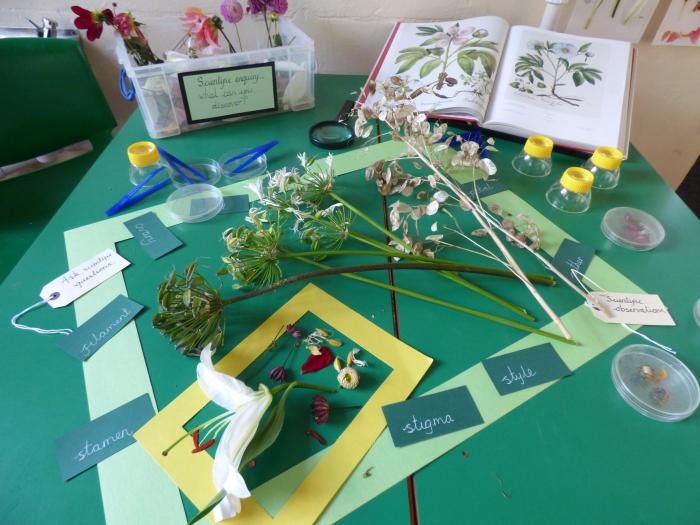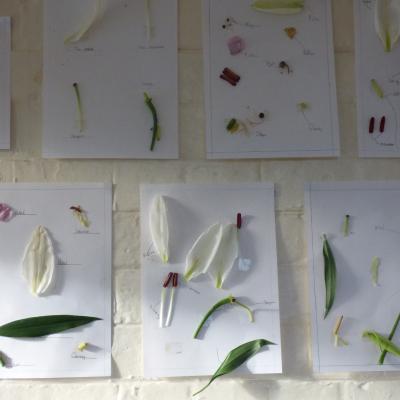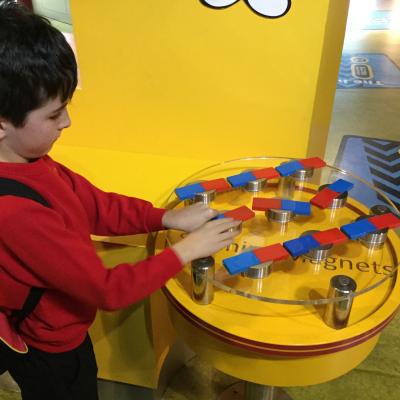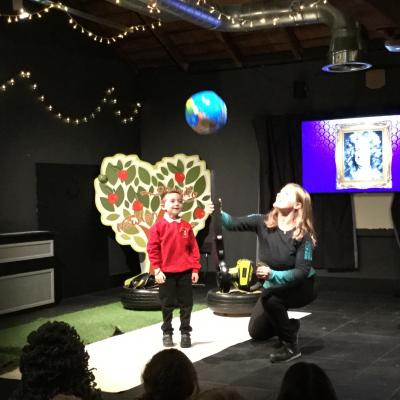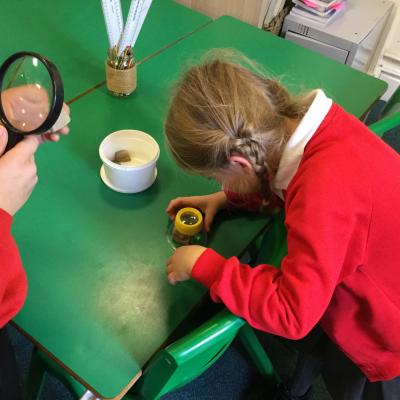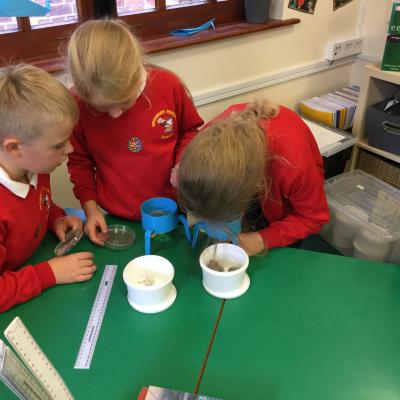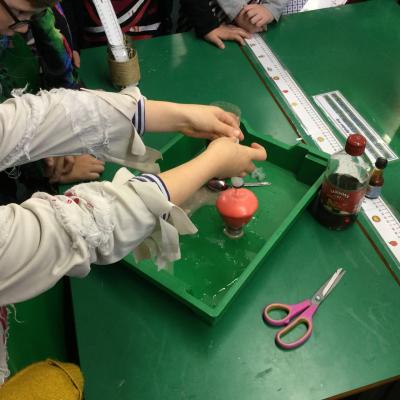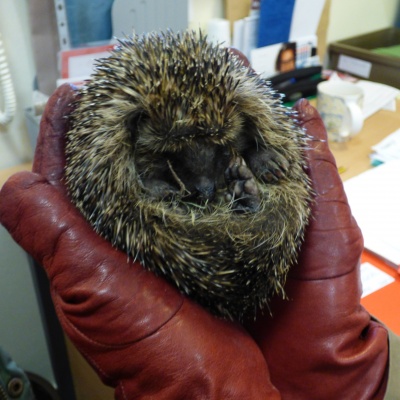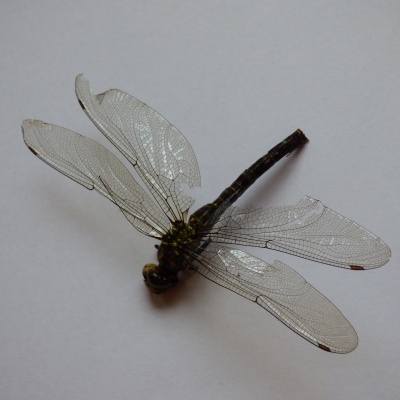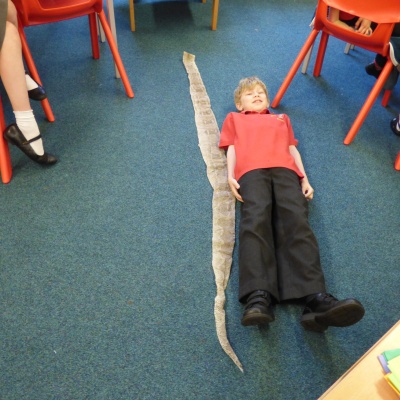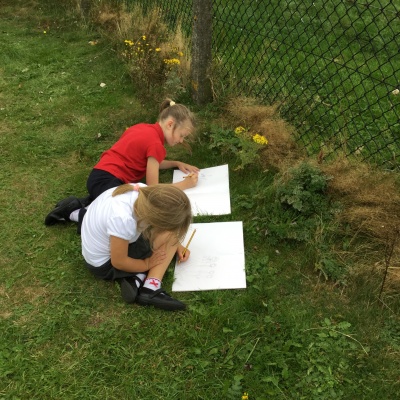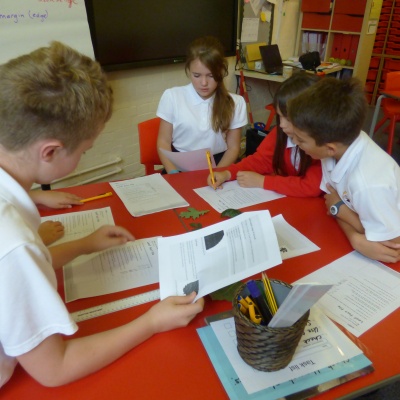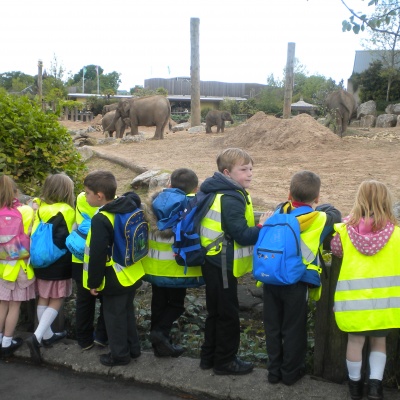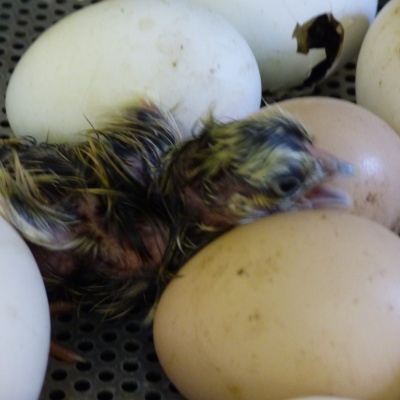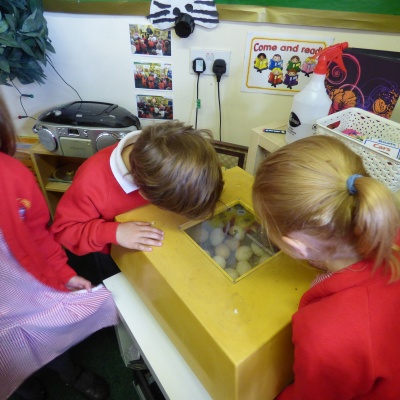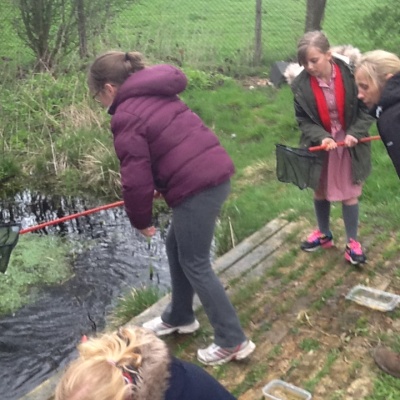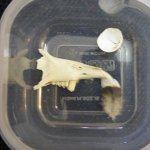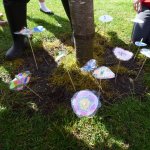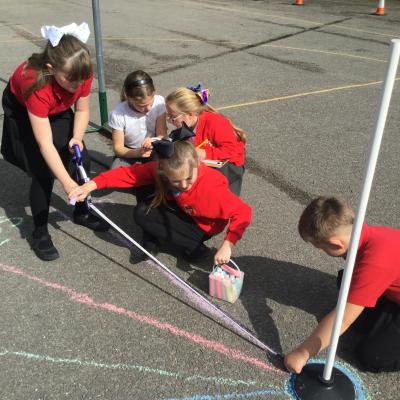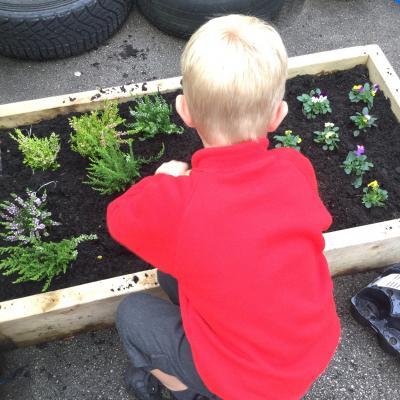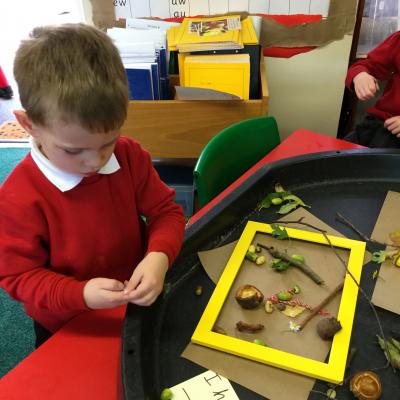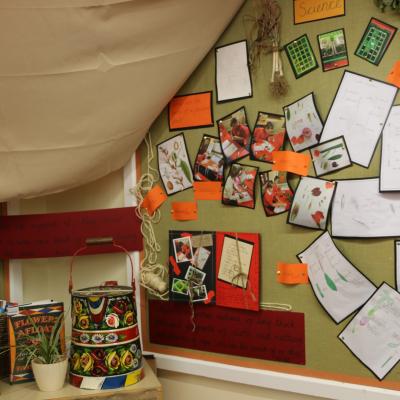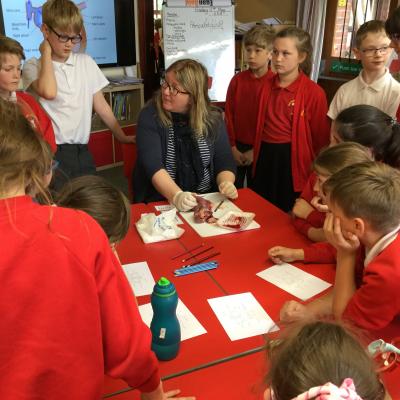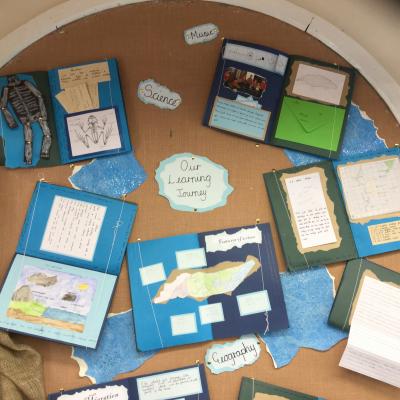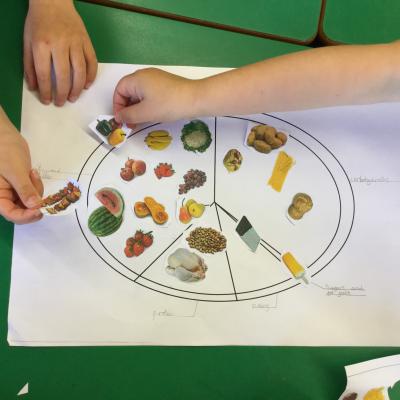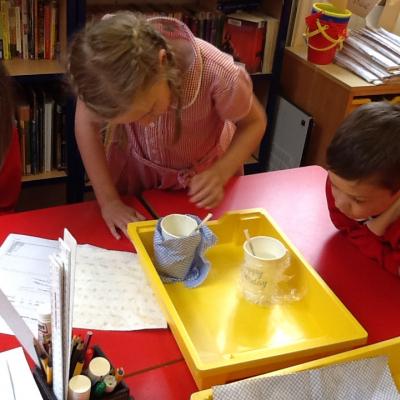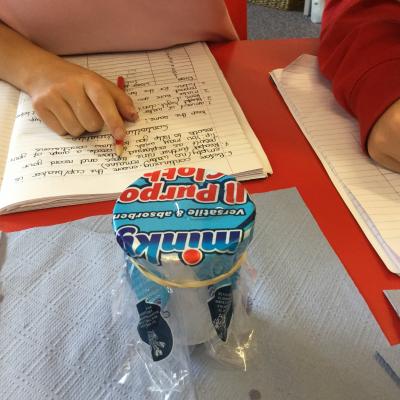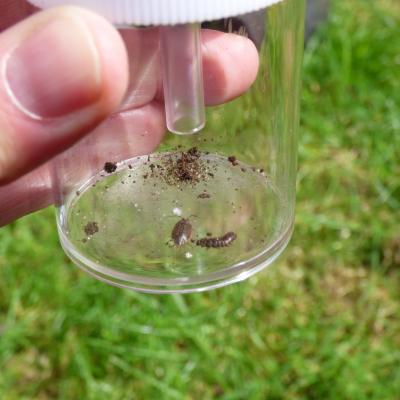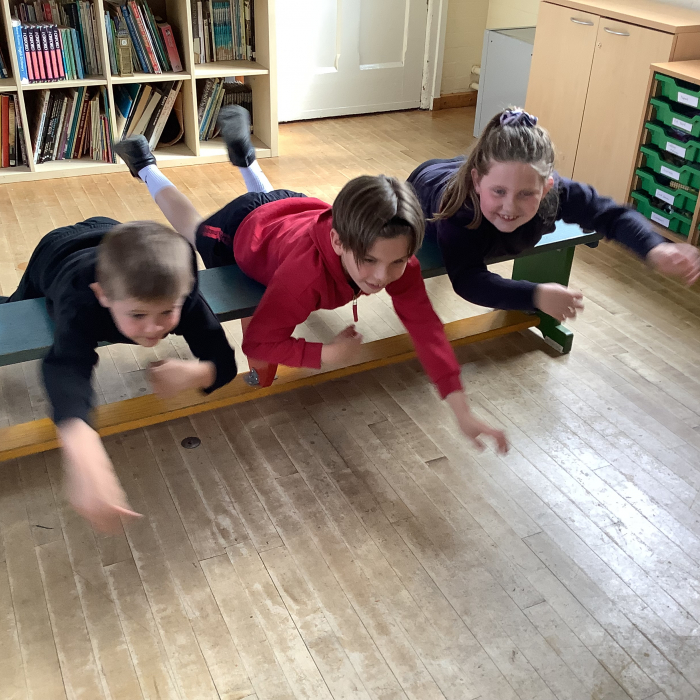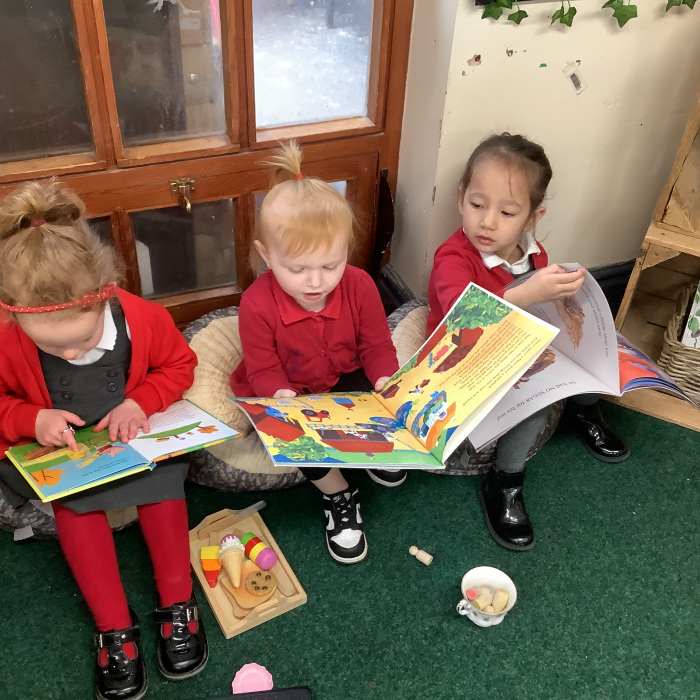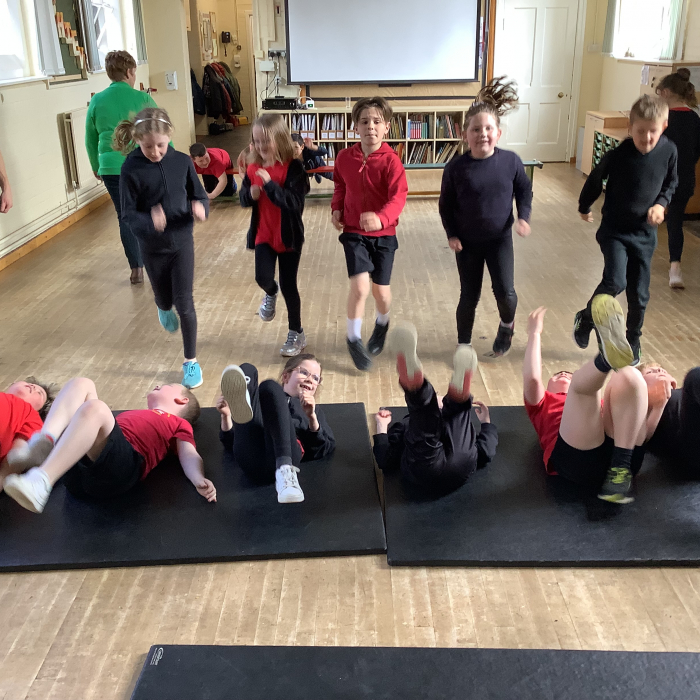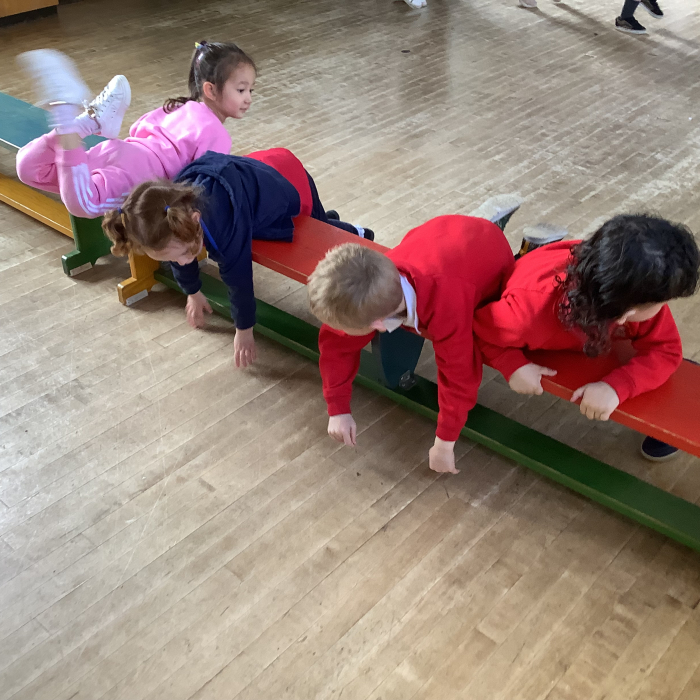Science
Mr Thorburn is our Science Subject Lead. Here is our Science Curriculum 2022-23.
At Wrenbury Primary School, we strongly believe that a child's curiosity matters. The National Curriculum 2014 Programmes of Study (PoS) for Science form the basis of our teaching and learning. We work practically wherever possible to foster and maintain children's curiosity in the world around them.
Why do we teach Science?
The new National Curriculum for 2014 sets out why we teach Science in schools:
'A high-quality Science education provides the foundations for understanding the world through the specific disciplines of biology, chemistry and physics. Science has changed our lives and is vital to the world's future prosperity, and all pupils should be taught essential aspects of the knowledge, methods, processes and uses of Science. Through building up a body of key foundational knowledge and concepts, pupils should be encouraged to recognise the power of rational explanation and develop a sense of excitement and curiosity about natural phenomena. They should be encouraged to understand how Science can be used to explain what is occurring, predict how things will behave, and analyse causes.' Maintaining curiosity 2014
The aims of Science in our school are:
-to promote and maintain curiosity about the world around us;
Curriculum & School Organisation
Coverage and progression in Science in each Base and year group is woven, where possible, into our annual Learning Journey overviews. Medium term planning is incorporated into termly holistic plans. Teachers plan for coverage and progression and scientific work is collated in Cohort/Base Science books, with photographic, pictorial and written evidence. Coverage and progression in knowledge, skills and understanding are monitored by the subject leader.
We aim to teach the equivalent of one hour of science per week in each key stage (or the equivalent cumulatively during a half term). In addition to this, we seek every opportunity to develop science with cross curricular links. In the main entrance, a natural world display follows the seasons across the year and is used to provide the children with objects of interest to observe, discuss and have 'hands-on' interaction with. Children is school are encouraged to add to the display.
EYFS: Understanding of the World
By the end of Reception children should:
know about similarities and differences in relation to places, objects, materials and living things. They talk about the features of their own immediate environment and how environments might vary from one another. They make observations of animals and plants and explain why some things occur, and talk about changes.
Key stage 1 and 2: Science is planned from the statutory programmes of study within the National Curriculum.
Teaching and learning style
Science teaching at Wrenbury focuses on maintaining curiosity. We do this by giving children every opportunity to work practically whilst exploring specific disciplines of Biology, Chemistry and Physics. In every series of lessons, we aim to give children opportunities to work scientifically using fair testing, pattern-seeking, observation and measurement over time, classification or identification. Written work is used only where scientifically beneficial and may be recorded in cohort/Base Science evidence books or a child's Learning Journey book.
Science is linked to Learning Journey topics where possible. Where work is cross curricular, children may experience Science through:
Enquiry based research
Use of data -- statistics, graphs, pictures and photographs
ICT
Role play
Problem solving
Outdoor education and visits
Literacy and Numeracy lessons
Links to other subjects
Current affairs
The learning environment
The outdoor learning environment is of great importance at Wrenbury. Termly Learning Journeys are planned to offer the children a broad and practical scientific experience using the outdoors where possible. Science at Wrenbury is well resourced to:
- Promote and maintain curiosity
- Provide a stimulus for the Science focus being taught and learned;
- Create safe investigative environments for children to explore their scientific ideas;
- Provide opportunities for observation over time for children to engage with and evaluate;
- Provide access to the resources necessary for children to question, enquire, analyse and investigate;
- Celebrate pupils' learning and achievements and showcase the Science taking place in school.
- Curriculum enhancement opportunities
- School visits with links to science, visitors to school, science experiences during learning Journey theme days and National Science Week all provide further opportunities to participate in science.
Resourcing
Resources are centrally stored outside Base 2 and organised in clearly labelled boxes. These resources are accessible to all staff when required.
Links with other subjects
We seek every opportunity to develop science with cross curricular links to Maths, Literacy, Computing and Design and Technology and other areas of the curriculum when appropriate.
